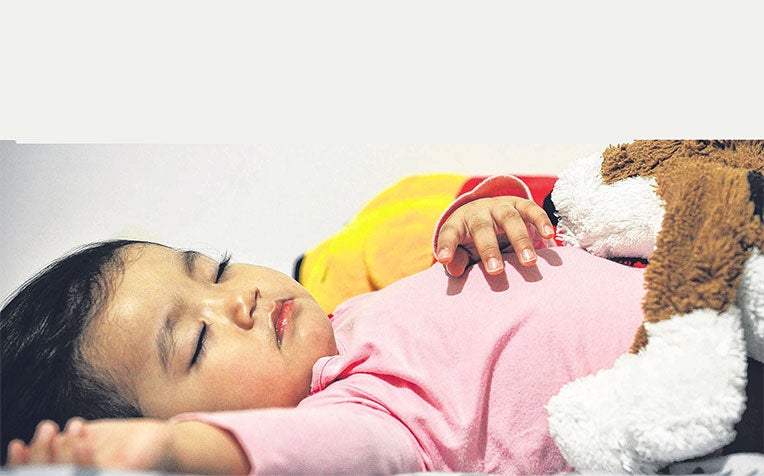
can create a ritual that helps babies feel more secure and fall asleep, but do not let routines become fixations.
Getting a baby to sleep through the night may well be the holy grail of new parents. But they can instil the habits that help him learn to sleep on his own. Dr Janice Wong from Thomson Paediatric Centre said that babies ought to learn how to soothe themselves to sleep, for instance, by rubbing their faces or rolling about. Here are some tips to get you started on helping your baby go to sleep on his own.
START YOUNG
Dr Petrina Wong, a paediatric consultant at KK Women’s and Children’s Hospital (KKH), said parents can start teaching babies about two to four weeks old to distinguish night from day.
“When the baby wakes up and cries or fusses at night, wait a few minutes before responding to him,” she said. “This is because he may wake up more often if caregivers attend to the slightest movement or whimper in the night.”
KEEP CALM
Parents should check on infants without turning on bright lights, playing with them or exposing them to stimuli, which could have the opposite of the desired effect. A gentle hand on a fussing infant may be all that is needed to give baby the comfort he needs.
Dr Mahesh Babu Ramamurthy, head and senior consultant at the National University Hospital’s paediatric pulmonary and sleep division, said: “When there is paren- tal presence – with rocking, hand- holding and so forth – babies tend to wake up more in the night.”
DON’T SEND THEM TO BED HUNGRY
Confinement nanny agency manager Gladys Yip, 42, said that older babies should be sent to bed on a full stomach. For example, feed them a half-portion of milk about 2 1/2 hours after their last full feed.
Dr Leo Deng Jin of Thomson Paediatric Centre (Bukit Panjang) agreed but added: “Some babies do sleep better after having their milk feed, but the amount of milk given should be reasonable. Too much milk given at one go may result in the baby vomiting or feeling bloated.”
Difficulties latching on to the nipple may also result in their waking up hungry in the night.
Dr Leo said: “Most babies will reduce their reliance on night feeds by about four months of age.”
CREATE A NIGHT-TIME ROUTINE
“Doula” (or mother’s companion) Emeline Hare, 41, said that bedtime cues – such as feeding, dimming the lights and reading a bedtime story – can create a ritual that helps babies feel more secure. This helps them to fall asleep more readily, she said.
But do not let routines become unhealthy fixations. Babies must fall asleep on their own.
Otherwise, they may develop an association between sleep and a parent’s rocking motion or fussing action and become unable to doze off. Thomson Paediatric Centre’s Dr Wong said: “Babies are creatures of habit and will become reliant on the need for comfort and soothing if parents adopt certain methods to get them to sleep.”
Contributed by














 Get it on Google Play
Get it on Google Play